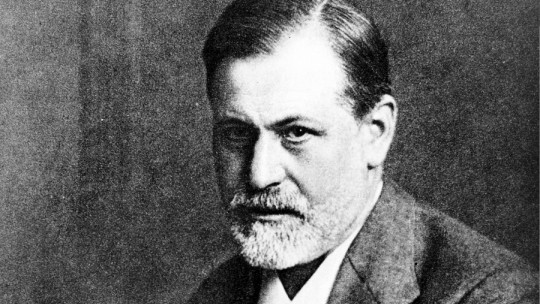“I wish I had it too”, “I should have gotten it”, “Why him/her and not me?” These and other similar phrases have been thought and expressed by a large number of people throughout their lives.
All of them have one element in common: they express the desire to possess something that is not possessed by oneself but by others In other words, all these expressions refer to envy. Below we proceed to carry out a brief analysis of the meaning of envy, as well as what some research reflects about it.
Defining envy
When we talk about envy we refer to a feeling of pain and frustration due to not having a good, characteristic, relationship or desired event that we would like to have and another person does have, this situation being seen as unfair.
Thus, we can consider that for envy to appear, there are three basic conditions, the first being that there must be someone other than the individual who possesses a specific good, characteristic or achievement, the second that this phenomenon, characteristic or possession is object of desire for the individual and finally, the third condition is that a feeling of discomfort, frustration or pain appears when faced with the comparison between the two subjects.
The feeling of envy is born from another feeling, that of inferiority, when compared between subjects. In general, feelings of envy are directed towards people who are at levels and strata relatively similar to one’s own, since individuals who are very far from one’s own characteristics do not usually awaken the feeling of inequality that can be caused by someone with circumstances similar to those of one’s own. oneself.
Considered one of the seven deadly sins by various religious denominations, This feeling involves focusing on the characteristics of others, ignoring one’s own qualities It represents an obstacle to the establishment of a healthy relationship, undermining interpersonal relationships, as well as the maintenance of positive self-esteem.
1. Different types of envy
However, it is worth asking whether envy occurs in the same way in all people, a question that apparently has a negative answer.
This is due to what is known as healthy envy. This term refers to a type of envy focused on the envied element, without wishing any harm to the person who possesses it. On the other hand, pure envy involves the belief that we are more deserving of the object of desire than the one we envy, and joy can occur when the latter fails.
2. Disadvantages to take into account
Envy has traditionally been conceptualized as a negative element, due to the deep discomfort it causes along with the hostile relationship it entails towards other people, which is related to a lack of self-esteem and the fact that it comes from the feeling of inferiority and inequality. In addition, According to numerous studies, envy may be behind the existence and creation of prejudices
Likewise, envy towards other people can cause defensive reactions to appear in the form of irony, mockery, heteroaggressiveness (that is, aggression directed at other people, whether physical or psychological) and narcissism. It is common for envy to transform into resentment, and if it is a prolonged situation over time it can lead to the existence of depressive disorders. Likewise, it can induce feelings of guilt in people who are aware of their envy (which correlates with the desire that the envied person do poorly), as well as anxiety and stress.
3. Evolutionary sense of envy
However, although all these considerations have a scientific basis, envy can also be used in a positive way
Envy seems to have an evolutionary meaning: this feeling has driven competition in the search for resources and the generation of new strategies and tools, elements that have been essential for survival since the beginning of humanity.
Also, in this sense envy makes a situation that we consider unfair can motivate us to try to reach a situation of equity in areas such as work (for example, it can lead to fighting to reduce salary differences, avoid favored treatment or establish clear promotion criteria).
4. Neurobiology of envy
Reflecting on envy can lead to wondering, And what happens in our brain when we envy someone?
This reflection has led to the carrying out of various experiments. Thus, in this sense, a series of experiments carried out by researchers from the National Institute of Radiological Sciences of Japan have indicated that when faced with the feeling of envy, various areas involved in the perception of physical pain are activated at the brain level. Similarly, when volunteers were asked to imagine that the envied subject suffered a failure, dopamine was released in brain areas of the ventral striatum, activating the brain reward mechanism. Furthermore, the results demonstrate that the intensity of perceived envy correlated with the pleasure obtained from the failure of the person envied.
5. Jealousy and envy: fundamental differences
It is relatively common, especially when the object of desire is a relationship with someone, that envy and jealousy are used interchangeably to refer to the feeling of frustration caused by not enjoying that personal relationship.
The reason that envy and jealousy are often confused is that they normally occur together That is, jealousy occurs towards people who are considered to be more attractive or have qualities than oneself, thus envying the supposed rival. However, these are two concepts that, although related, do not refer to the same thing.
The main differentiation is that while envy occurs with respect to an attribute or element that one does not possess, jealousy occurs when one fears the loss of an element that one does have (generally personal relationships). Likewise, another difference can be found in the fact that envy occurs between two people (the envied and the subject who envies) with respect to an element, in the case of jealousy a triadic relationship is established (person with jealousy, person with respect to the that there is jealousy and a third person who could snatch the second). The third difference would be found in the fact that jealousy comes along with a feeling of betrayal, while in the case of envy this does not usually happen.









